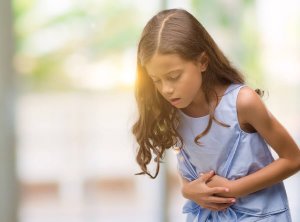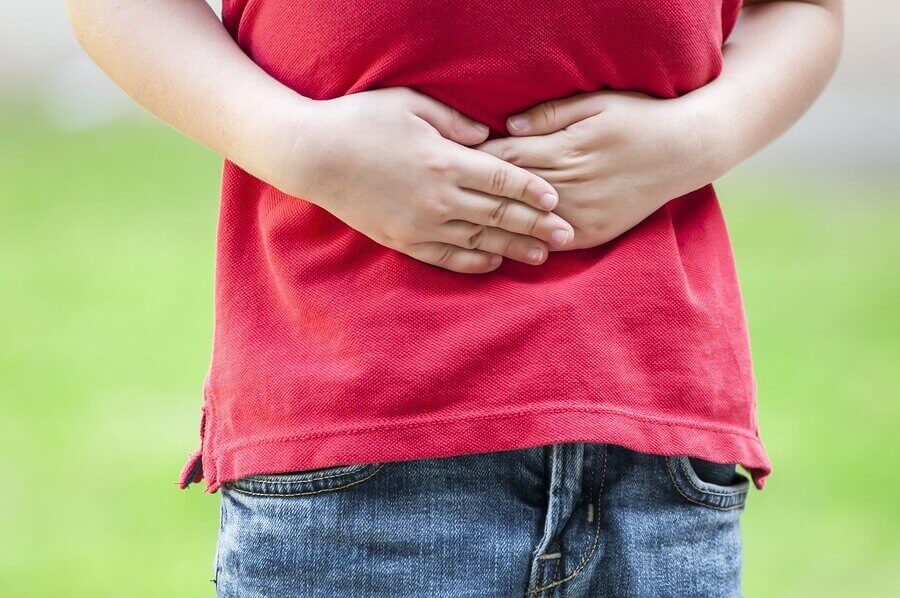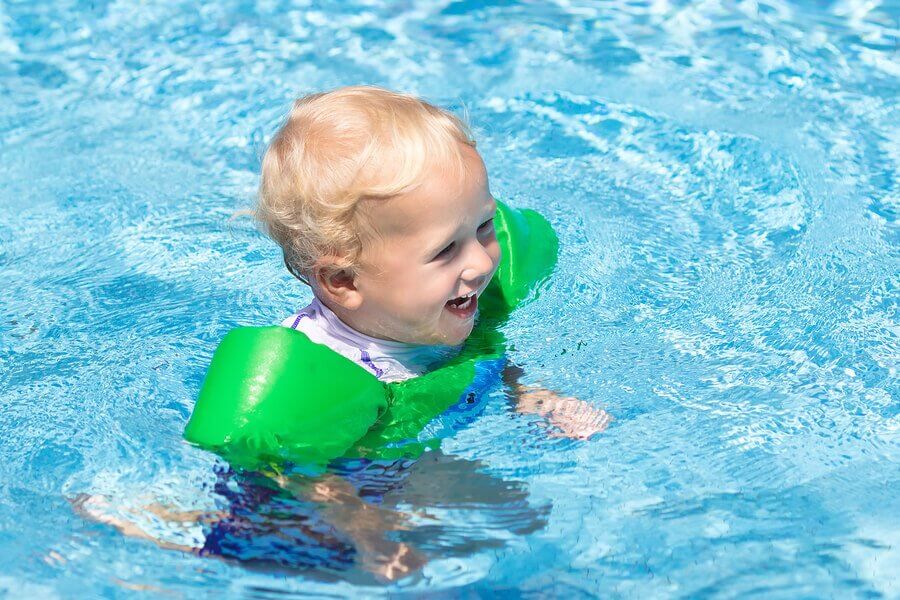Cold Shock Response in Children: What to Do

Cold shock response is actually a very common problem. You don’t have to worry, but you need to learn about the causes and how you can act if your child suffers from it.
What is cold shock response and what causes it?
Digestion is the process where the human body obtains nutrients from the food they eat. This organic process starts from when food enters your mouth, and it ends when your body absorbs all of the necessary nutrients. Then, it leaves waste in your digestive tract.
The famous cold shock response refers to when the digestion process suddenly stops. This discomfort, also known as hydrocution, can happen to anyone. However, it’s most common among children.
There are lots of different causes of this problem. To understand how it starts, it’s important to know that after eating, your blood flow concentrates in the digestive tract. Therefore, your blood flow helps you digest your food.
One of the main causes of cold shock response is that there is a sudden temperature change in the body during digestion. If this happens, the blood quickly goes to other organs, which cuts the digestion process.
Cold shock response in children
The most common cause of cold shock response is going swimming right after eating, either in the pool or the sea. When children put their body in contact with cold water right after eating, this issue occurs.

It’s important to know what this is and how to react to it. This type of problem can cause loss of consciousness because it can decrease blood flow to your brain.
In addition, doing activities that require lots of movement after eating can also cause cold shock response in children. Therefore, we recommend waiting a little while before doing any activity that involves lots of energy.
What to do if your child has cold shock response
If children go for a swim after a meal, they may start to feel bad. The most common symptoms of this problem in children are paleness, sweating and dizziness.
In these cases, the best way to alleviate the discomfort is to have kids lay down and elevate their legs a little. This way, they’ll start to feel less dizzy and their heart won’t work as hard. Normally, they start to improve in a few minutes. However, we recommend that they rest for at least two hours.
“The famous cold shock response refers to when the digestion process suddenly stops. This discomfort, also known as hydrocution, can happen to anyone.”
Later, kids may have vomiting or diarrhea. It’s important for you to pay attention. If you see these symptoms, it’s best for them to follow a liquid diet to avoid dehydration.
If these symptoms don’t improve or get worse, you should go to the emergency room immediately. In fact, it’s possible for children with cold shock response to lose consciousness.
In severe cases, although it’s rare, this condition can make children go into cardiac arrest. Therefore, it’s very important for parents to react as soon as they see the first symptoms.

Prevention in children
Our recommendation on how to prevent it in children is the one we mentioned earlier. It’s most effective for children to wait at least two hours after eating, before going swimming or playing games that require lots of energy and physical activity.
In addition, if you know you’re going to the pool or sea, make lighter meals. This way, your kids can digest them faster, and you can better prevent cold shock response. Try to avoid foods rich in fat, since these take longer to digest.
It’s important for kids not to go right into cold water. They should go in little by little so their body can get used to the change in temperature.
Additionally, you should be careful if your child has been playing in the sun because the temperature change will be more abrupt.
In conclusion, although cold shock response in children is common, it’s important to know how to act. You need to teach them to take the time to let their food digest. It’s a very good way to prevent this awful condition. In addition, it’s a healthy habit in general.
Cold shock response is actually a very common problem. You don’t have to worry, but you need to learn about the causes and how you can act if your child suffers from it.
What is cold shock response and what causes it?
Digestion is the process where the human body obtains nutrients from the food they eat. This organic process starts from when food enters your mouth, and it ends when your body absorbs all of the necessary nutrients. Then, it leaves waste in your digestive tract.
The famous cold shock response refers to when the digestion process suddenly stops. This discomfort, also known as hydrocution, can happen to anyone. However, it’s most common among children.
There are lots of different causes of this problem. To understand how it starts, it’s important to know that after eating, your blood flow concentrates in the digestive tract. Therefore, your blood flow helps you digest your food.
One of the main causes of cold shock response is that there is a sudden temperature change in the body during digestion. If this happens, the blood quickly goes to other organs, which cuts the digestion process.
Cold shock response in children
The most common cause of cold shock response is going swimming right after eating, either in the pool or the sea. When children put their body in contact with cold water right after eating, this issue occurs.

It’s important to know what this is and how to react to it. This type of problem can cause loss of consciousness because it can decrease blood flow to your brain.
In addition, doing activities that require lots of movement after eating can also cause cold shock response in children. Therefore, we recommend waiting a little while before doing any activity that involves lots of energy.
What to do if your child has cold shock response
If children go for a swim after a meal, they may start to feel bad. The most common symptoms of this problem in children are paleness, sweating and dizziness.
In these cases, the best way to alleviate the discomfort is to have kids lay down and elevate their legs a little. This way, they’ll start to feel less dizzy and their heart won’t work as hard. Normally, they start to improve in a few minutes. However, we recommend that they rest for at least two hours.
“The famous cold shock response refers to when the digestion process suddenly stops. This discomfort, also known as hydrocution, can happen to anyone.”
Later, kids may have vomiting or diarrhea. It’s important for you to pay attention. If you see these symptoms, it’s best for them to follow a liquid diet to avoid dehydration.
If these symptoms don’t improve or get worse, you should go to the emergency room immediately. In fact, it’s possible for children with cold shock response to lose consciousness.
In severe cases, although it’s rare, this condition can make children go into cardiac arrest. Therefore, it’s very important for parents to react as soon as they see the first symptoms.

Prevention in children
Our recommendation on how to prevent it in children is the one we mentioned earlier. It’s most effective for children to wait at least two hours after eating, before going swimming or playing games that require lots of energy and physical activity.
In addition, if you know you’re going to the pool or sea, make lighter meals. This way, your kids can digest them faster, and you can better prevent cold shock response. Try to avoid foods rich in fat, since these take longer to digest.
It’s important for kids not to go right into cold water. They should go in little by little so their body can get used to the change in temperature.
Additionally, you should be careful if your child has been playing in the sun because the temperature change will be more abrupt.
In conclusion, although cold shock response in children is common, it’s important to know how to act. You need to teach them to take the time to let their food digest. It’s a very good way to prevent this awful condition. In addition, it’s a healthy habit in general.
All cited sources were thoroughly reviewed by our team to ensure their quality, reliability, currency, and validity. The bibliography of this article was considered reliable and of academic or scientific accuracy.
- Guarino A., Guandalini S., Vecchio AL., Probiotics for prevention and treatment of diarrhea. J Clin Gastroenterol, 2015.
- Santillanes G., Rose E., Evaluation and management of dehydration in children. Emerg Med Clin North Am, 2018. 36 (2): 259-273.
This text is provided for informational purposes only and does not replace consultation with a professional. If in doubt, consult your specialist.








